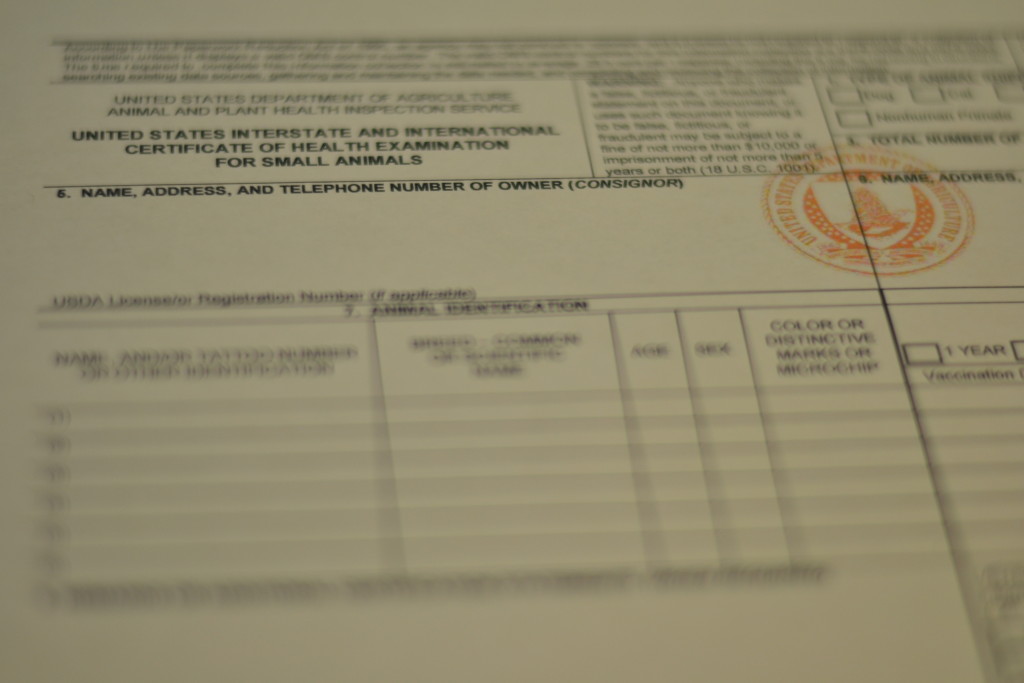International travel with your pet can be a lot of fun. At the same time, the free movement of animals around the world has to be balanced with the interests of destination countries in preventing the introduction of exotic diseases. For example, the United Kingdom, Japan, and Australia are free of rabies. Were the rabies virus to somehow establish a foothold in these places, it would cause the unnecessary deaths of many animals and cost millions of dollars in economic damage. Most countries are understanding of the human-animal bond and want us to be able to travel with our pets in a responsible and well-regulated manner. We at Evesham Veterinary Clinic have helped pets from Marlton, Voorhees, Cherry Hill, and the surrounding area travel around the world, to places such as France, Germany, the Caribbean, Hawaii, Russia, Israel, China, Brazil, Argentina, and Japan.
If you would like to bring your companion with you to a foreign country or to Hawaii, please call us at (856) 983-9440 as soon as you know your travel plans. Timing is important, and the best way to prevent problems is to start early.
Pets will often need a preliminary visit for any necessary vaccinations and to make sure documentation is in order.
Before departure, you will need to schedule an appointment where we will issue a health certificate for export. In most cases this will then need to be endorsed by the USDA in Albany, NY. You also need to find out about local requirements and may need additional documentation.
Many airlines are now requiring their own veterinary health forms. It is your responsibility to find out which airlines you will be traveling on and the documentation required.
Most destinations require microchip identification. This is a small chip that is placed under the skin between the shoulder blades. It needs to be given before the rabies vaccination.
Rabies vaccine certificates are required and usually need to be signed and dated in blue ink, along with having the microchip number listed on them.
Some countries require a rabies titer, which is a blood test that must be taken well in advance of arrival and processed in an approved laboratory. We can do this test, however it is important to get started early in order to get the results at the appropriate time.
Some countries require treatment for external parasites, including fleas and ticks, and internal parasites such as echinococcus, a tapeworm endemic to the southwestern United States.
A great resource for planning is the USDA – APHIS.
Also feel free to call us at (856) 983-9440 or email info@eveshamvet.com.
Four of our veterinarians are USDA accredited to help with international travel.
- Dr. Charles Bell
- Dr. Maria Iannone
- Dr. Jeffrey Bell
- Dr. Jaclyn Bell
Helpful USDA – APHIS Video:
Update – January 19, 2024
The USDA and many countries have moved to partial or fully electronic submission of health certificates. From an owner perspective, not much has changed. You still need the following:
- Microchip (most countries). Best if ISO-compliant (e.g. Home Again).
- Vaccinate for Rabies. Get Rabies certificate with microchip number on it and veterinarian’s signature (preferably in blue ink)
- Call as soon as you begin to consider travelling to work out a timeline.
- Know who owns the pet, who is traveling with the pet, port of embarkation (where you are leaving from), when you will arrive at the destination country. If your flight stops in an intermediate country, you need to know whether you will stay in the airport or if you will clear customs.
- Some countries require a rabies titer blood test. This can take several months to complete so keep that in mind.
- A great resource is https://www.aphis.usda.gov/aphis/pet-travel

